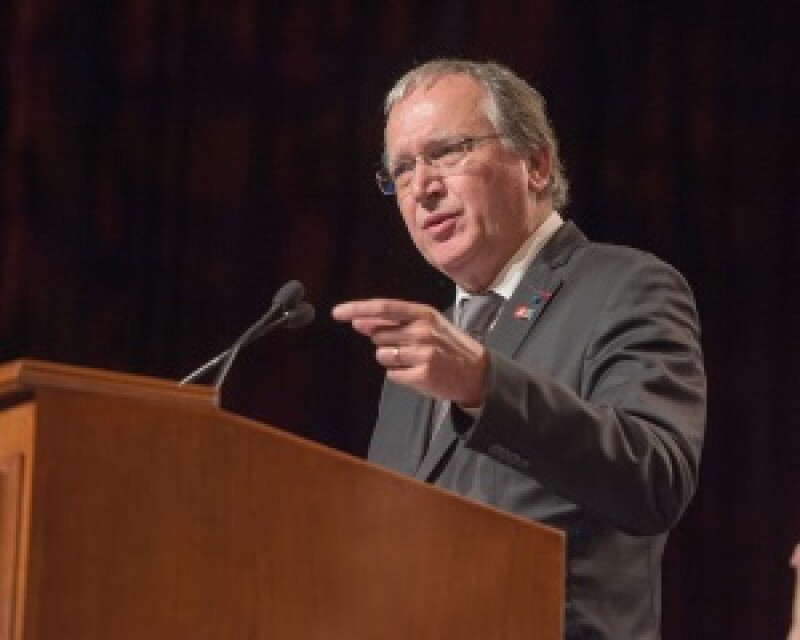
He noted that applicants in this country have ranked the largest in filings at the EPO since it was set up, with a 25% share in 2013. He outlined the close cooperation between the EPO and the USPTO for various projects including the Cooperative Patent Classification (CPC), the Global Dossier, the Patent Prosecution Highway and a study on the economic impact of patents.
He expanded on this theme in an interview with the AIPLA Daily Report.
“We have very good relations with the USPTO and I think these relations have improved and gained in density recently,” he said. “I think we have reached a stage where we are able to launch specific projects together, and implement them successfully. The best example I can give of that is the CPC, which is clearly a valuable joint venture. It has been developed in less than two years and then implemented quickly. It is becoming much more important than many people expected. More and more offices, including medium-sized offices, have clearly indicated their willingness to adopt this CPC.”
He believes the United States and European patent systems are moving closer to each other.
“I have the feeling that through different recent decisions taken in the US at different levels – court decisions, administration decisions, legislative decisions and so on – the two systems are getting closer in their balance and in their practice. They are still quite different, of course, but we are getting closer. This is good for both. So we are now concentrating on harmonization at different levels – technical, procedural, administrative, substantive and so on.”
The IP5 offices have made progress in harmonizing patent procedures. Of the 2.2 procedures at the IP5 offices, about 300,000 are cross-filed to two or more offices. The IP5 offices decided in June this year to move forward within the Patent Harmonization Expert Panel in the areas of unity of invention, citation of prior art and written description/sufficiency of disclosure.
One way Europe is not like the United States, however, is there are not the same concerns about patent trolls. Some fear this could change with the upcoming implementation of the Unitary Patent and Unified Patent Court (see yesterday’s newsletter, page 7, for a guide to these).
Battistelli dismisses the idea of troll activity increasing in Europe. “Some say that it will facilitate the development of patent trolls in Europe. I don’t think this is true because this court will apply very similar rules to the current national courts,” he says. He points out that the UPC has no punitive damages, no automatic preliminary injunction, litigation costs have to be borne by the losing party, and there are specialized patent judges and no juries.
“The patent troll has not developed in Europe as it has in the US and there is no reason in the future that it will develop more than it has currently,” he said.
Rather, Battistelli said the biggest concern raised around the Unitary Patent and UPC is the great power it will yield.
“The concerns are, ‘I am going to risk my patent with one decision taken by one court.’ Yes, this is true, but if you want to have a decision valid in 25 countries, you cannot escape that. This is the essence of it.”









